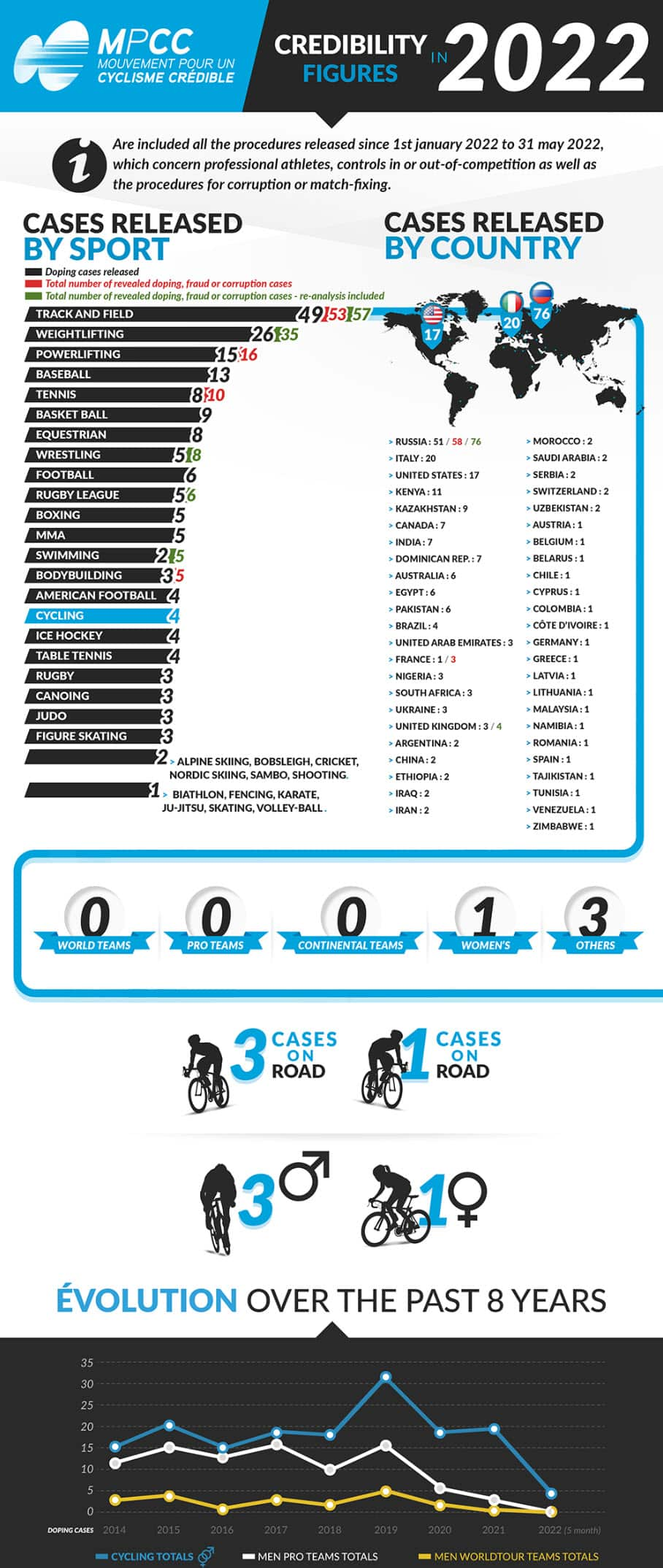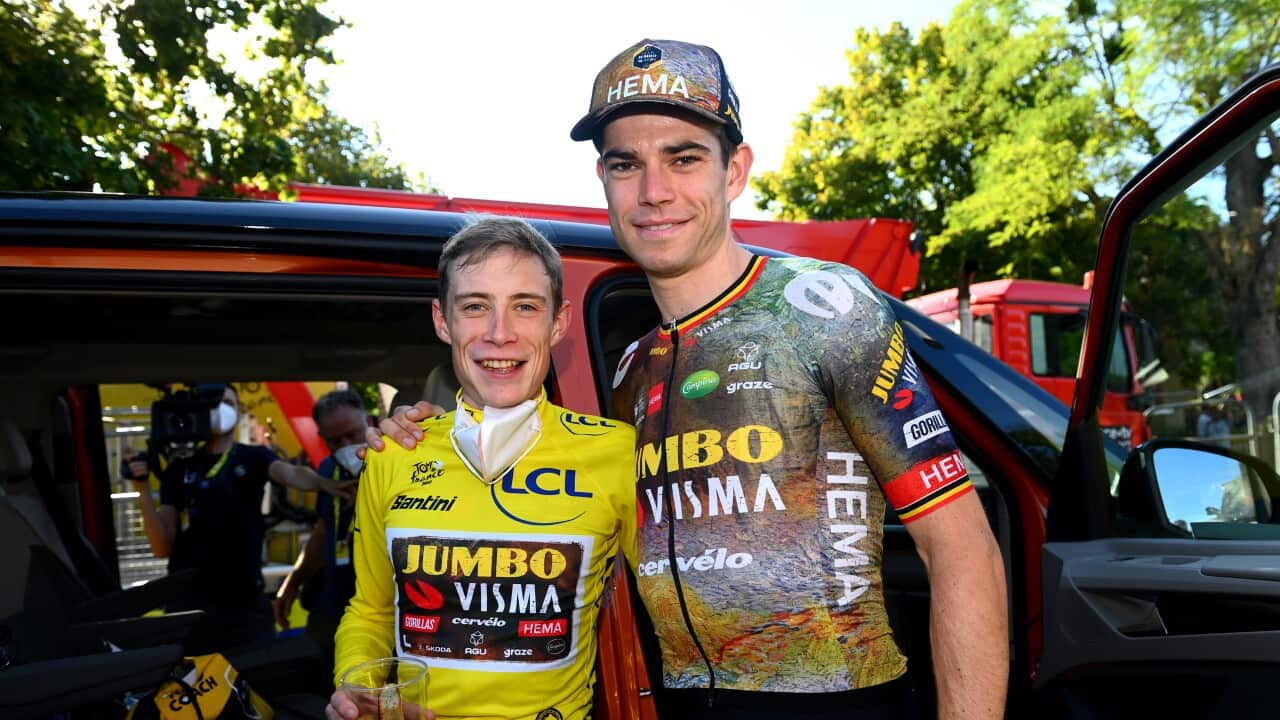Vingegaard is all but assured of winning the Tour de France after a series of strong performances in recent days has seen him fend off the challenge of two-time winner Tadej Pogačar (UAE Team Emirates). Meanwhile van Aert took out the green jersey sprint classification and three stages, all while supporting teammate Vingegaard to win the yellow jersey.
Van Aert went on the offensive when asked whether his and Jumbo-Visma’s team performance could be believed during the winner’s press conference after Stage 20 of the Tour de France.
“I don’t want to answer this question, it’s such a sh*t question,” van Aert said. “It comes back every time after someone’s winning the Tour.”
When pressed to answer, the reporter referencing that Vingegaard had answered the question, van Aert again showed his emotion at having to be asked about cheating in the midst of one of his greatest career triumphs.
“Because now we are performing on these levels we have to defend ourselves? I don’t get it,” van Aert said. “We worked super hard for this. Cycling has changed and I don’t like that we have to keep replying on this.
“We do controls every moment of the year, not only at the Tour de France. If you look at our team and how we developed throughout the years, it’s not like we’re coming from nowhere.”
Historically, cycling has been plagued by doping scandals like the Festina affair in 1998 that saw a number of teams exposed for systematic doping and the Lance Armstrong Tours de France, a run of seven Tours from 1999 to 2005 where the winner was expunged from the history books after news broke of Armstrong’s years of using performance-enhancing substances.
2022 and 2021 have been years where not a single member of the men’s WorldTour peloton was involved in doping proceedings and for the Tour de France, that record stretches back to 2015.
Vingegaard (Jumbo-Visma) had managed to not be subjected to doping questions during the course of the Tour de France, but he was asked why the public should trust in his and his team’s Tour de France performances given their impressive nature.
“We’re totally clean,” Vingegaard said. “Every one of us. I can say that to everyone of you. Not one of us is taking anything illegal.
“I think why we’re so good is the preparation that we do. We take altitude camps to the next step. We do everything with material, food, and training. The team is the best within this. That’s why you have to trust.”
Pogačar (UAE Team Emirates) had been hounded by doping questions and mechanical assistance rumours throughout the 2021 Tour de France, his margin at the top of the leaderboard perhaps meaning that focusing on the race tactics was less of an option for those looking for news.
Vingegaard’s assured answer was one of many shorter responses in a press conference that went into his development as a Grand Tour contender on a personal, physical and tactical level.
The below chart from the Movement for Credible Cycling (MPCC), a voluntary organisation that features nine men’s WorldTour teams and six women’s WorldTour squads amidst their 51 members, shows the relative performance of cycling compared to other sports in doping and over time.

Watch the FIFA World Cup 2026™, Tour de France, Tour de France Femmes, Giro d’Italia, Vuelta a España, Dakar Rally, World Athletics / ISU Championships (and more) via SBS On Demand – your free live streaming and catch-up service. Read more about Sport
Have a story or comment? Contact Us

